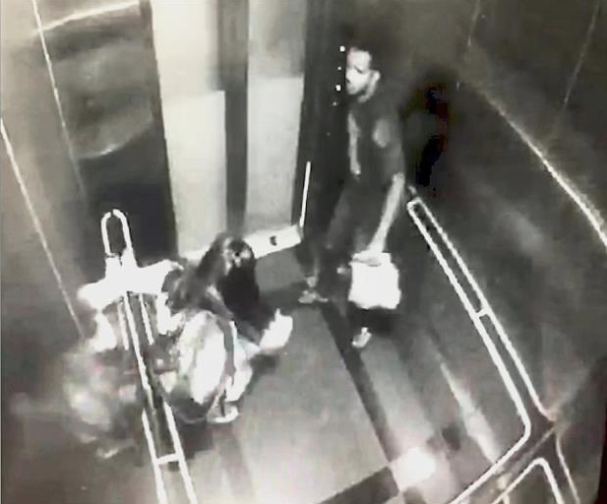Two viral videos set off a racially-tinged social media firestorm last week after they purported to show men of South Asian descent brutally attacking and robbing women in Hong Kong.
Social media users were characteristically outraged at the footage, though many chose to focus on the race of the attackers as much as the brutality of the crimes.
“To the incompetent HK government, the rubbish justice department and Hong Kong’s lawmakers, I hope you’ll provide a safe environment for Hongkongers and deport South Asian refugees,” one said.
“No matter where you are in the world, fake refugees are a problem and they harm social security, it’s a serious problem that needs to be dealt with,” another added.
One even made the racial subtext all the more overt, chiming in: “South Asian dog.”
As it turns out, authorities later clarified, neither video was actually shot in Hong Kong. One was was actually taken last year — in Romania — while the other shows an incident that took place in Malaysia just last week.
But the vitriolic response, advocates say, only goes to show how entrenched local negative perceptions of South Asians remain, and how recent overblown political rhetoric surrounding so-called “fake refugees” has laid bare a broader distrust of a community with roots in Hong Kong going back more than a century.
What’s more, the particular confluence of fake news, social media vitriol, and undertones of ethnocentrism evident in the response to the videos shows that Hong Kong isn’t immune to troubling trends sweeping much of the rest of the world.
In one of the videos, initially described as having been taken in Cheung Sha Wan, a man who appears to be South Asian follows a woman into an elevator, viciously attacking her the minute the doors close. The attack goes on for some time, as the woman struggles to hang on to her bag, which the man eventually wrenches away before fleeing the elevator. (Warning: both of the videos below contain disturbing acts of violence.)
https://twitter.com/sumishanaidu/status/1096618107634741248
Police later clarified that the attack took place at a Kuala Lumpur MRT station on Thursday, which has been covered by our colleagues at Coconuts KL.
In the second video, a man and woman are seen waiting for an elevator, when the man suddenly punches the woman in the head, all but knocking her out. He then rifles through her possessions before fleeing through a nearby exit.
https://www.youtube.com/watch?v=8jKiOrjIaZw
Though the incident was billed on social media as having taken place at a housing block in Tsim Sha Tsui, it was actually filmed in Romania last November.
Phyllis Cheung, executive director of minority rights organization Unison Hong Kong, said that Hongkongers’ reactions to the videos were a symptom of persistent segregation and unflattering portrayals of South Asians in the media.
“People don’t have actual contact with South Asians, so it’s all hearsay; it’s what they learn from the media,” she said, noting that crime stories with South Asian suspects tend to blare the perpetrator’s race in the headline, while stories featuring South Asian victims tend not to dwell on race. “It’s all about negative news.”
“What this does is it makes people see South Asians as robbers, as bad people,” she added.
According to Cheung, Hong Kong public schools are failing when it comes to integrating South Asians into their student bodies, reinforcing the social separation between the community and Hong Kong’s ethnic Chinese majority.
“It’s just a vicious cycle of discrimination,” she said.
The notion of “fake refugees,” meanwhile, appears to have entered the public consciousness thanks to rhetoric from pro-establishment lawmakers around the 2016 Legislative Council elections. Both a former secretary for security and Hong Kong’s largest political party have proposed detention camps to deter would-be fake asylum seekers.
While the term ostensibly refers to purportedly opportunistic economic refugees from South Asia, such asylum seekers constitute only a tiny fraction of the ethnic minorities living in Hong Kong, and the term was quickly conflated with the South Asian community as a whole, Cheung says.
“As a political tactic, they are actually equating South Asians with fake refugees, with insecurity,” she said. “When they say they want to deport all these fake refugees to make society safer,” politicians are capitalizing on Hongkongers’ fears of “the other.”
Cheung credited the government for forming a steering committee that is seeking to counter negative perceptions of ethnic minorities in Hong Kong, but said its work remains unknown to the broader population.
“Outside the community [of advocates], it looks like most Chinese people don’t know what the government is trying to do,” she said. “It’s not widespread enough that the government is trying to recognize these Hongkongers and value their contributions.”




